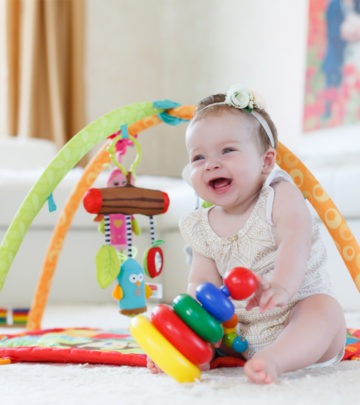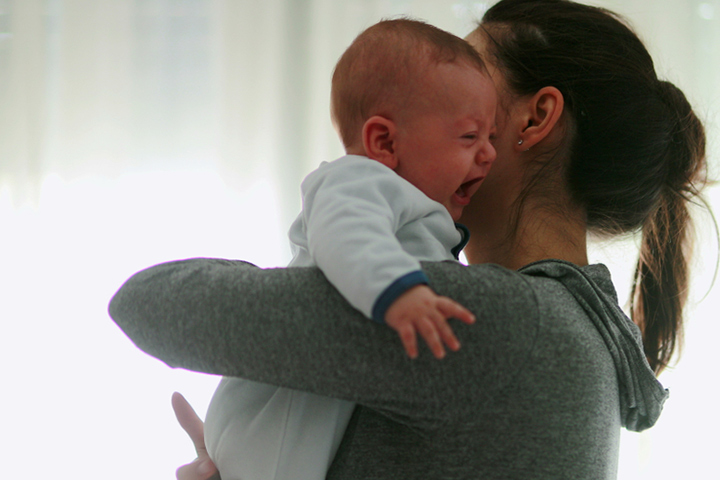
Image: Shutterstock
If you say that you can resist picking up a cute baby, hugging them, and showering them with kisses, you’re probably lying. The cuteness that a baby exuberates is irresistible. Anyone who loves babies knows that their chubby cheeks, innocent smile, and teeny-tiny fingers are designed to fall in love with, and there’s no second thought about it. However, when you become a parent, the feeling of wanting to hold your baby all the time is amplified. Parents want to keep their babies close and pour all the love they possibly have into their little ones. But they might worry that it could spoil their baby.
So, the question is: can you spoil a baby? You might think that giving them attention, love, and care all the time might spoil them, but you are wrong. We are here to tell you why there is no such thing as spoiling your baby with scientific evidence backing us. Scroll this article to find out:
- Holding Your Baby Too Much
Image: Shutterstock
Several scientific studies say that it’s good to practice self-soothing in babies from a really young age. But other studies support the opposite claim. According to some experts, responding to your infant’s cries is essential for their well-being and development. In babies born prematurely and placed in the NICU, touch is the cornerstone of sensory and cognitive development (1).
- Responding To Your Baby
Image: Shutterstock
You might have heard of the cry-it-out method of sleeping, where babies are left to cry themselves to sleep without your intervention. Many parents follow this method because they are scared that their baby might become “clingy” if they respond to them every time they cry. However, research suggests that consistent responsiveness allows your baby to develop secure attachments. It also helps in brain development in regions related to social, emotional, and cognitive functions (2).
- Feeding Your Baby On Demand
Image: Shutterstock
When you start breastfeeding your little one, you follow a daily schedule. Most often, doctors and lactation specialists advise you to feed your infant every 2-3 hours. However, is it wise for you to feed your baby on demand, or should you stick to the schedule? According to experts, it’s best to stick to on-demand feeding during the first couple of months of an infant’s birth. As your baby gets older, they’ll begin to nurse less often (3). You can then stick to a more predictable schedule. However, by feeding your baby on demand, there is no way that you will spoil your little one. You’ll only help your baby grow and give them the nutrition they need.
- Showering Them With Gifts
Image: Shutterstock
Some people might worry that you can spoil your baby by giving them too many gifts. But the truth is that they are too young to recognize a gift. For example, a baby might be equally fascinated by a cardboard box than a toy airplane. Therefore, don’t worry if you’ve got your baby a stroller that has fancy features — your baby has no idea. One thing that you should actively keep your baby away from is the screen! If your baby is below 18 months, there should be no screen time at all. As your little one grows older, you may allow them limited access to screen time. But ensure that it’s productive and not more than one hour per day (4). Instead of spending time in front of a screen, encourage them to spend time with relatives, grandparents, siblings, and the environment.
You might be worried about spoiling your little one by some of your simple behaviors. But fret not, it’s almost impossible to spoil your baby, especially in the first couple of years of their life. Remember that parenting has a learning curve, and it’s okay not to have all the answers. Was this article helpful? Let us know in the comments below and share it with fellow parents!
















